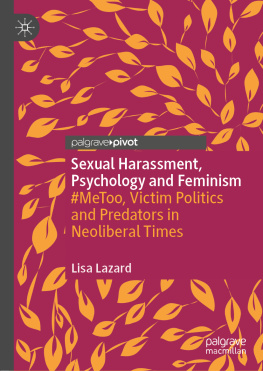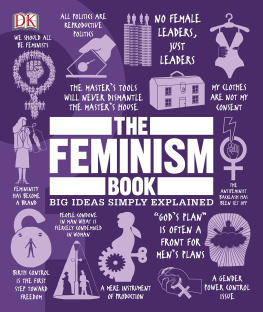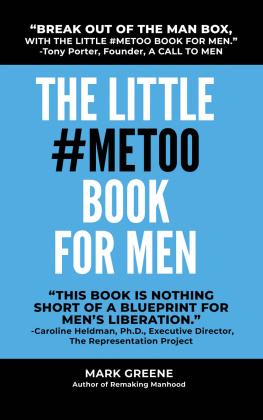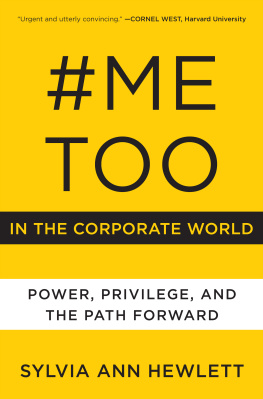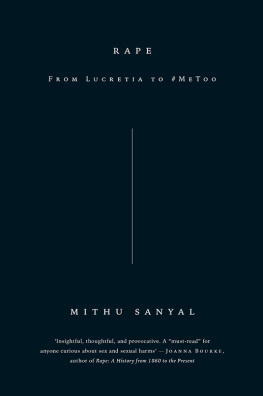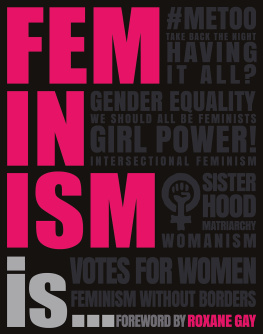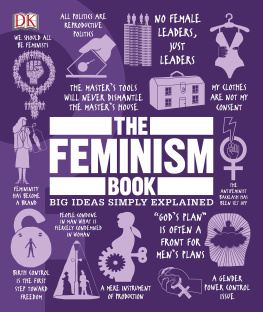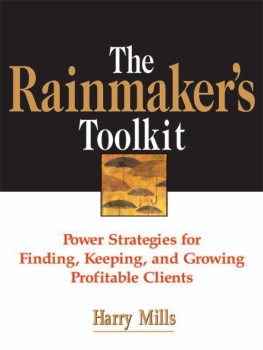Mills Sam - Chauvo-Feminism: On Sex, Power and #MeToo
Here you can read online Mills Sam - Chauvo-Feminism: On Sex, Power and #MeToo full text of the book (entire story) in english for free. Download pdf and epub, get meaning, cover and reviews about this ebook. year: 2021, publisher: The Indigo Press, genre: Detective and thriller. Description of the work, (preface) as well as reviews are available. Best literature library LitArk.com created for fans of good reading and offers a wide selection of genres:
Romance novel
Science fiction
Adventure
Detective
Science
History
Home and family
Prose
Art
Politics
Computer
Non-fiction
Religion
Business
Children
Humor
Choose a favorite category and find really read worthwhile books. Enjoy immersion in the world of imagination, feel the emotions of the characters or learn something new for yourself, make an fascinating discovery.

- Book:Chauvo-Feminism: On Sex, Power and #MeToo
- Author:
- Publisher:The Indigo Press
- Genre:
- Year:2021
- Rating:5 / 5
- Favourites:Add to favourites
- Your mark:
- 100
- 1
- 2
- 3
- 4
- 5
Chauvo-Feminism: On Sex, Power and #MeToo: summary, description and annotation
We offer to read an annotation, description, summary or preface (depends on what the author of the book "Chauvo-Feminism: On Sex, Power and #MeToo" wrote himself). If you haven't found the necessary information about the book — write in the comments, we will try to find it.
Mills Sam: author's other books
Who wrote Chauvo-Feminism: On Sex, Power and #MeToo? Find out the surname, the name of the author of the book and a list of all author's works by series.
Chauvo-Feminism: On Sex, Power and #MeToo — read online for free the complete book (whole text) full work
Below is the text of the book, divided by pages. System saving the place of the last page read, allows you to conveniently read the book "Chauvo-Feminism: On Sex, Power and #MeToo" online for free, without having to search again every time where you left off. Put a bookmark, and you can go to the page where you finished reading at any time.
Font size:
Interval:
Bookmark:
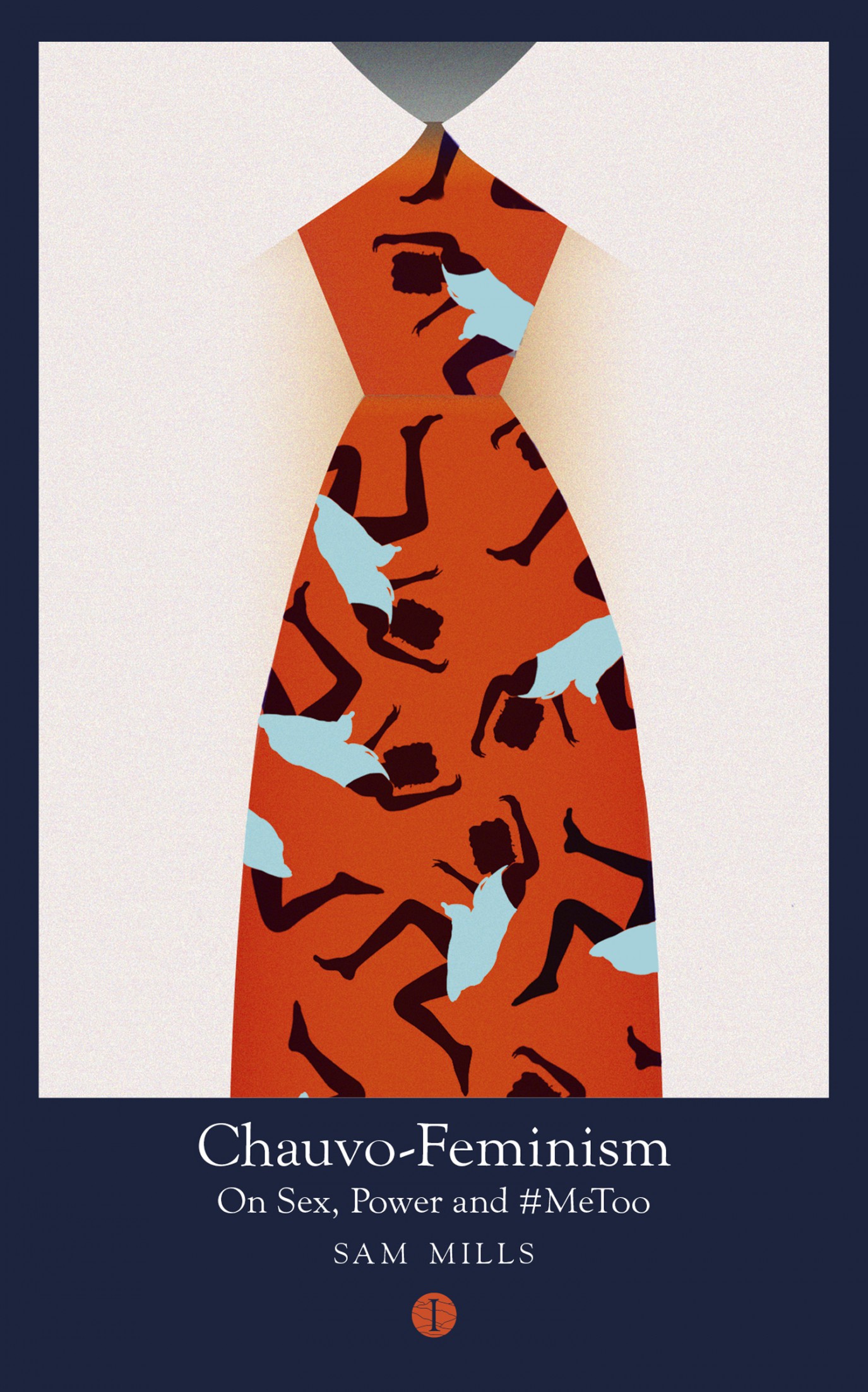
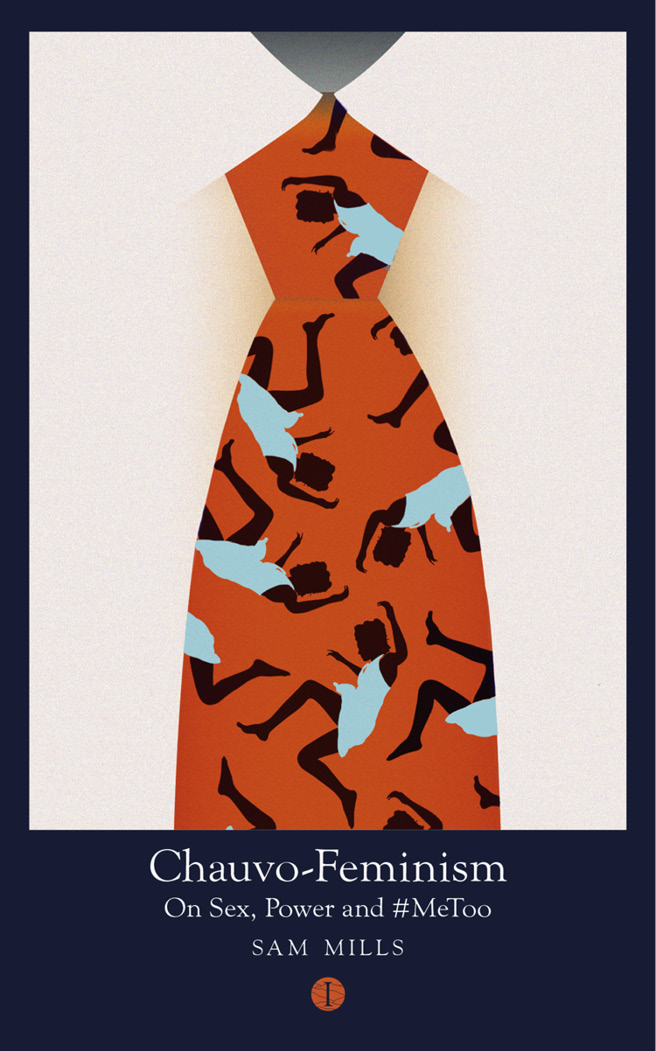
Weve all met That Guy. In this searching and provocative essay, Sam Mills neatly skewers the men who publicly spout feminism while treating women badly behind closed doors and asks how we can move forward to a happier, more feminist future.
Samantha Ellis
Sam Mills has given us an update on the #MeToo movement. Thought-provoking, on point and abreast of contemporary ideas about the chauvinism of womens everyday lives. A book for our times.
Monique Roffey
A cri de coeur written from the precipice of a new cultural landscape In this lithe and luminous essay, Sam Mills explodes the hypocrisy of many men in the wake of the #MeToo movement. Here she deftly blends her own experiences at the hands of one such chauvo-feminist with a critique of what really constitutes social change regarding the abuse of women by powerful men. Clever, funny, gripping and beautifully written, Chauvo-Feminism is an exploration not just of the female experience, but of civilisation itself. This is a dazzling, essential book. Men with mutant politics: beware!
Emma Jane Unsworth

THE INDIGO PRESS
50 Albemarle Street
London w1s 4bd
www.theindigopress.com
The Indigo Press Publishing Limited Reg. No. 10995574
Registered Office: Wellesley House, Duke of Wellington Avenue
Royal Arsenal, London se18 6ss
copyright SAM MILLS 2021
This edition first published in Great Britain in 2021 by The Indigo Press
Sam Mills asserts the moral right to be identified as the author of this work in accordance with the Copyright, Designs and Patents Act 1988
A CIP catalogue record for this book is available from the British Library
ISBN: 978-1-911648-18-5
eBook ISBN: 978-1-911648-21-5
All rights reserved. No part of this publication may be reproduced, stored in a retrieval system or transmitted, in any form or by any means, electronic, mechanical, photocopying, recording or otherwise, without the prior permission of the publishers.
Design by houseofthought.io
Typesetting and eBook by Tetragon, London
For L.K.
The experiences described in this essay, whether mine or the women I interviewed, are all true. However, dates, names, places and other details may have been changed to protect the privacy, and conceal the identities, of certain individuals.
Womens liberation has often been portrayed as a movement intent on encroaching upon or taking power and privilege away from men, as though in some dismal zero-sum game, only one gender at a time could be free and powerful. But we are free together or slaves together.
Rebecca Solnit ,
The Longest War (2013)
Late spring, the late 1990s: I am sitting in a small conference room in Oxford University. I am nineteen years old. There are eleven students in our group, twice as many men as women. We are in our first year studying for a BA in English Literature.
The tutor enters. She is in her mid-fifties, tall and elegant, with salt-and-pepper hair and shrewd eyes. She sits down and informs us that she is standing in for this lesson because our usual tutor is absent. We are here to discuss feminist literary theory.
We all take a look at the photocopied extracts we have been given in preparation: an essay by Susan Gubar called The Blank Page and the Issues of Female Creativity. She asks if we have any opinions on this. A silence follows. I feel uncomfortable; hesitant. I am one of the few people at my college from a working-class background. I still feel as though I am lucky to be at Oxford rather than someone who belongs there. Though I am confident when I pick up a pen and shape an essay, I am unpractised at translating my opinions into articulate speech. Many of the male students in my group have grown up being taught to debate at private school. Some look as though they wouldnt be out of place in a Bullingdon Club photo. Usually they dominate the discussions, locking intellectual antlers. The silence feels conspiratorial: a pact of rejection.
And then one of the men mutters, I think shes got a clitoris problem, and a snigger ripples through the group. He gives the tutor a sidelong glance to emphasize that it is her particular clitoris that offends him.
Im not sure if the tutor has heard him. She chooses to ignore him. She carries on with the lesson, but it is not a success. Every so often, a female student engages with her, but the men remain unusually quiet.
I feel bewildered by what I have witnessed. I have spent my teenage years studying at a girls school. I have grown up with brothers, in a household full of men who have treated me with respect. My experience of the male sex has been compartmentalized: I have danced with boys, dated them, got drunk with them, but I have not had to sit in a room with them and compete, nor deal with waspish remarks about female genitalia. My mother was discouraged from studying for a degree because her chauvinistic father said it was a waste of time and money, declaring she would only end up getting married and having kids. She has made it clear that I am different: I am from a privileged generation. I am under the illusion that I have prepared myself for my degree because I have spent my holidays industriously devouring the greats of English literature, from Beowulf to Chaucer to Austen to Eliot. I have not studied de Beauvoir, or Greer, or Wolf due to the idealistic assumption that times have evolved: we are living in a world that has undergone several waves of feminism and is now egalitarian.
Sitting in that room in Oxford, I felt as though I had been launched into a battlefield without armour, weaponry or training, to fight a war that I thought women of decades past had already won.
Whenever I retell this experience, people immediately assume that the chauvinist I am describing is a supercilious public school boy. But he had studied at a comprehensive, seemed down to earth, had a good sense of humour and was well liked.
In our next tutorial, he argued passionately against having to study feminist literary theory at all. The tutor pointed out that such a line of argument would mean there was also no point in studying post-colonialism, or having any interest in anyone beyond his own small sphere of experience. This did not seem to strike him as a problem.
If I were to see my chauvinist again at a reunion, for example I am sure that he would be deeply embarrassed about his remarks, just as I feel angry with my young self for staying silent. He is happily married now, a successful professional, and behaves in a respectful manner with his female colleagues. We were all intelligent students, but we were also nave teenagers. By the time I left Oxford, I was what I might describe as a feminist-in-the-making, still under-read and confused by a world that was not as egalitarian as I thought it, but ready to fight if need be.
The 1990s to early 2000s was an era where female rights moved forward and backward. Rebecca Walker sparked feminisms third wave when she responded to Anita Hill giving testimony against Judge Clarence Thomas, who had received a Supreme Court nomination. Hill accused him of sexual harassment when they had worked together in the years 19813. Though Thomas was still confirmed as an associate justice, there was a public wave of anger at the way Hill was demeaned and dismissed by an all-male, all-white Senate Judiciary Committee. Walker published a piece in Ms Magazine entitled Becoming the Third Wave , in which she argued that Hills treatment was not about Thomass guilt, but checking and defining the extent of womens credibility and power. She declared: I am not a postfeminism feminist. I am the Third Wave. This wave celebrated Girl Power and the importance of intersectionality, coined by Kimberl Williams Crenshaw. Eve Enslers The Vagina Monologues were first performed on stage; Thelma and Louise hit cinemas and became an instant feminist classic; Susan Faludi published the iconic Backlash. In the US, huge strides forward were made in politics. Janet Reno became the first female Attorney General; Madeleine Albright the first Secretary of State. And in business Carly Fiorina became the CEO of Hewlett-Packard, the first female CEO of a Fortune 100 company.
Font size:
Interval:
Bookmark:
Similar books «Chauvo-Feminism: On Sex, Power and #MeToo»
Look at similar books to Chauvo-Feminism: On Sex, Power and #MeToo. We have selected literature similar in name and meaning in the hope of providing readers with more options to find new, interesting, not yet read works.
Discussion, reviews of the book Chauvo-Feminism: On Sex, Power and #MeToo and just readers' own opinions. Leave your comments, write what you think about the work, its meaning or the main characters. Specify what exactly you liked and what you didn't like, and why you think so.


